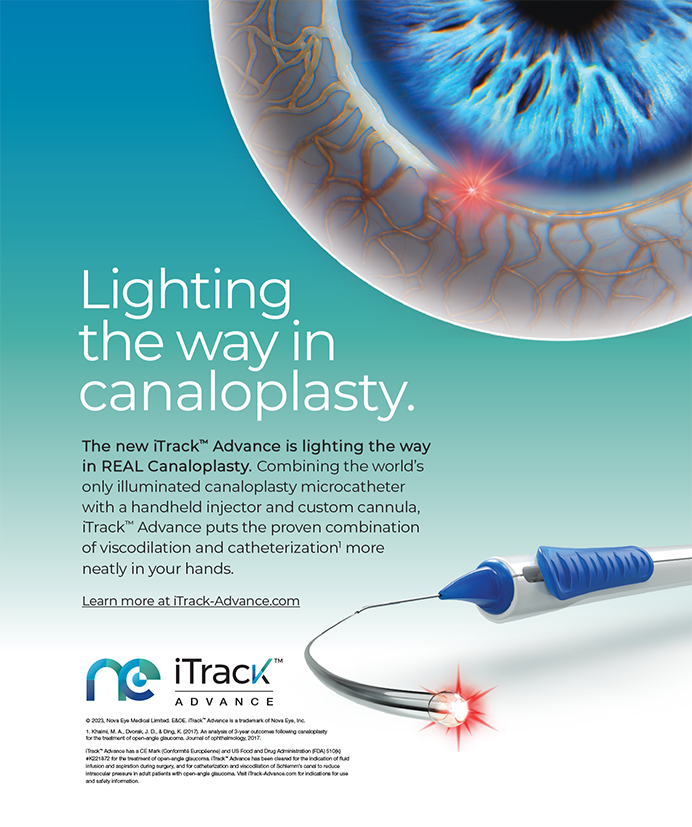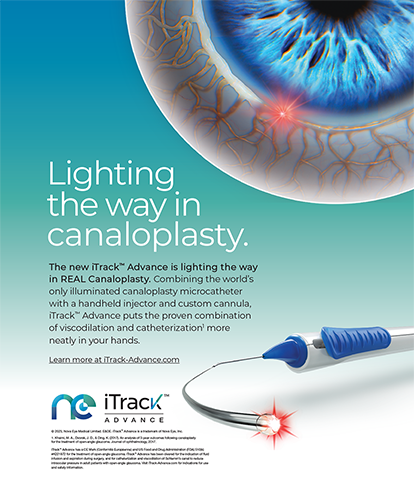A popular myth among patients is that eye doctors do not undergo refractive surgery themselves. This may provide false comfort to the laggard searching for reasons to stay in glasses, but the tale is simply not true. In my experience, optometrists and ophthalmologists (including refractive surgeons) opt to undergo refractive surgery after conducting a similar assessment of the procedure's risks and benefits as laypeople. I have been through this evaluative process three times myself. Here are some of the questions I faced. Which procedure? When is it good enough? Whom should I have as my surgeon? What if something goes wrong? Is there something better around the corner?
My involvement in refractive surgery began in 1983 when I performed my first RK while I was a cornea fellow in Boston. I continued to perform refractive surgery for 23 years until I was diagnosed with Parkinson's disease a few years ago. My refractive timeline gives me an interesting perspective on the changing issues in this field (Figure 1).
ASTIGMATIC KERATOTOMY
I did not wear glasses during my childhood. My parents told me that I needed to in order to correct my astigmatism, but I could see "okay" without glasses. My parents relented after I lost or broke every pair they provided. By age 18, the visual stress I experienced while studying in college led me to wear glasses all of the time. Later, as an ophthalmology resident, I learned that I had oblique mixed astigmatism ( 2.50 -1.75 X159 OD and 1.25 -1.00 X40 OS). In my 30s, my UCVA was 20/30—just bad enough to need glasses. When I was 36 years old in 1989, I underwent bilateral astigmatic keratotomy, which eliminated my astigmatism. I chose my friend and mentor, Lee Nordan, MD, of San Diego, to perform my surgery. Postoperatively, my visual improvement was immediate (20/10 UCVA). I was thrilled! The only negative surprise was that my eyes remained tender to the touch for 1 year after surgery.
HYPEROPIC LASIK
Over the next several years, I ignored the creeping approach of presbyopia. I was in denial about my condition until I was 42 years old and was, once again, dependent on glasses. During the next 4 years, the vision in my right eye ( 2.00 -0.75 X145) became increasingly blurry. I reached the point when I felt the risk-to-reward ratio was acceptable, and I underwent uncomplicated hyperopic LASIK in my right eye in 1999. Mickey Gordon, MD, of San Diego was my surgeon. I had known him for more than a decade and had observed him in surgery several times. I was completely confident about his skills, and I was excited to experience LASIK from the patient's side of the microscope. LASIK was easy, even for a wimp with eyes too sensitive to tolerate contacts. I recall lots of drops, mild pressure, the buzz of the keratome, the laser, and then more drops. The next morning, I had achieved distance vision of 20/20 and 20/20-2 at near. I was again free of spectacles except for the occasional use of 1.25 D readers.
PRESBYOPIA-CORRECTING IOLs
My spectacles-free holiday lasted 4 years, until I reached 50 years of age. I am now 55, and I wear strong progressive addition glasses all of the time. I am studying the progress of presbyopia-correcting IOL technology. I, of course, want perfect vision at all distances. Because Parkinson's disease makes me somewhat unstable on stairs and curbs, I am especially hopeful that I might gain better intermediate depth perception than I experience with my spectacles. I am undecided about which lens (or combination of lenses) will accomplish my goals. As for my choice of surgeon, I will work with someone with a great deal of experience in both refractive and cataract surgery. Mark Wellemeyer, MD, of Wichita, Kansas, my first partner, fits that description well. I am optimistic that my third refractive surgery will forever banish glasses from my life and will "cure" me of hyperopia, astigmatism, and presbyopia.
IN SUMMARY
Whether it is an eye doctor or a layperson who seeks refractive surgery, there is sometimes more than one good option to consider. For instance, I believe that LASIK and PRK are equally safe and effective. Now and again, there are significant differences to consider such as those between LASIK and multifocal IOLs. Not only are the risks and benefits of these modalities dissimilar, but there is a discrepancy in the relative maturity of LASIK versus presbyopia-correcting IOLs. These issues are personally relevant to me: What is the best procedure today for a 55-year-old 2.00 D presbyope?
Every patient, me included, wants to find a doctor who has it all: a sharp mind; dexterous hands; and a good heart. In my experience, the top surgeons in our field are generous with their time. Despite their busy schedule, they graciously accept a colleague as a patient. I remain appreciative of my surgically improved vision. Furthermore, as a refractive surgery patient myself, I better understand the special regard with which patients view their refractive surgeon.
Something better is always around the corner, but it is never perfect. Patients—including doctors who are patients—must rely on several factors when deciding what procedure is good enough for their precious eyes. Reading journal articles with statistically significant data is important when making the decision to undergo surgery. News coverage and the experience of friends also help guide patients' decisions. One of the greatest reassurances to patients considering a refractive procedure, however, is the knowledge that their surgeon has undergone refractive surgery.
R. Bruce Grene, MD, is a founding member of Grene Vision Group in Wichita, Kansas. Dr. Grene may be reached at (316) 304-3937; bgrene@grenevisiongroup.com.


